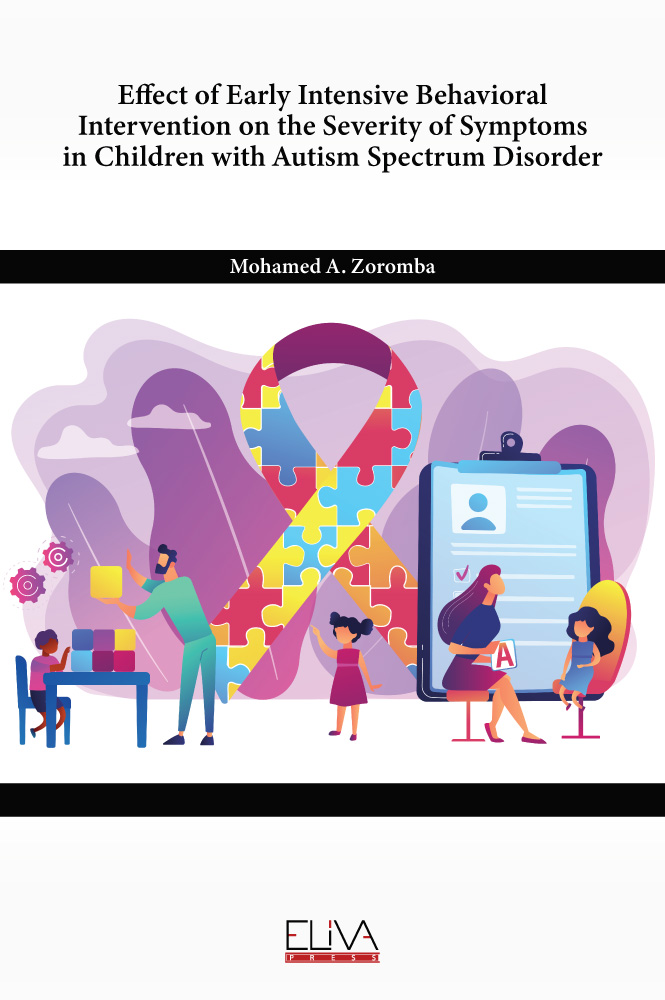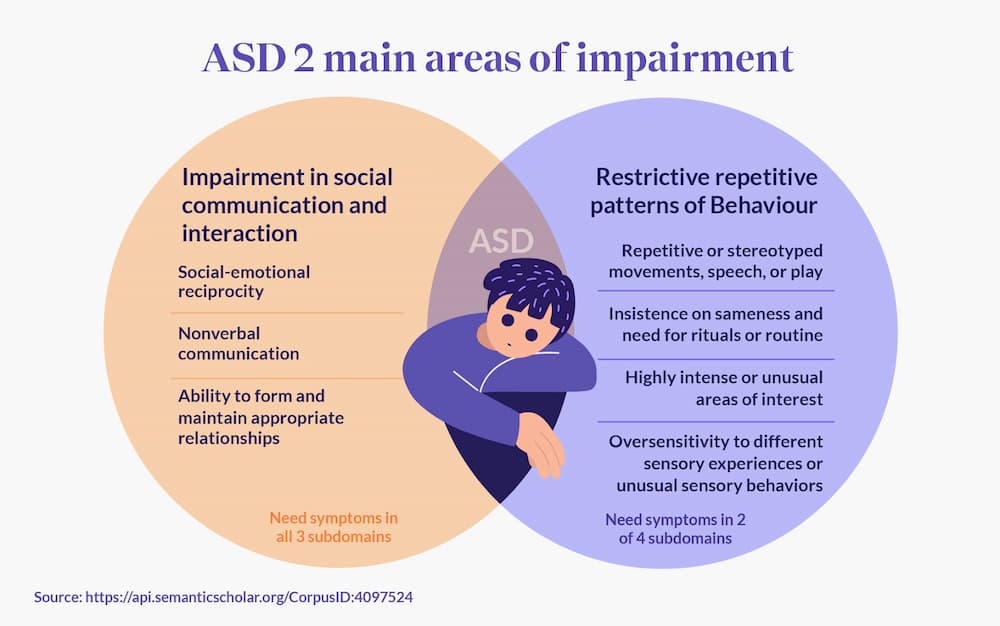Top 10 insights about how an Autism Therapist shapes social growth in autism
Top 10 insights about how an Autism Therapist shapes social growth in autism
Blog Article
Trick Indications and Symptoms to Acknowledge in People With Behavior Autism
When you encounter someone with behavioral autism, acknowledging vital indications and signs and symptoms is vital. You could discover difficulties in social communications and interaction, as well as a strong requirement for routines. In addition, sensory sensitivities can bring about frustrating experiences. Recognizing these attributes can enhance your assistance and treatments, yet there's more to uncover regarding exactly how these habits show up in day-to-day situations. Let's explore what these indications truly appear like.
Obstacles in Social Communications
When you interact with someone on the autism spectrum, you might discover they have a hard time with social hints and communication. These challenges can make social interactions feel overwhelming for them. You might see them avoiding eye contact or standing as well close or as well far during conversations, which can develop misconceptions. They could not detect body language or faces, making it harder for them to gauge how others are really feeling.
When they do involve, they may speak concerning their passions in great detail without observing if you're interested. Understanding these challenges can assist you come close to communications with compassion and persistence, fostering an extra comfy atmosphere for both of you.
Problem With Verbal and Non-Verbal Interaction

Non-verbal communication can be a lot more challenging. You could see a lack of eye contact or restricted use motions, which can make interactions really feel uncomfortable. Faces may not constantly straighten with the conversation, leading to confusion regarding their feelings. Recognizing these indications is vital, as it assists you better support and engage with people on the autism range. By understanding their communication challenges, you can promote more meaningful links and give a much more supportive environment.
Repeated Habits and Routines
Interaction difficulties typically come with other indications of autism, such as repeated habits and a strong preference for regimens. You could discover that people with autism typically take part in certain, repetitive activities, like hand-flapping, rocking, or duplicating phrases. These behaviors can offer comfort and a feeling of control in a typically frustrating world.
Regimens are equally important; many individuals grow when they follow a structured routine. You might discover that changes to these regimens can lead to significant distress. For instance, if they have an everyday routine of consuming morning meal at a certain time or adhering to a certain route to school, any kind of disturbance can cause anxiousness.
Recognizing these patterns aids you comprehend their habits and provide assistance. By fitting their need for regular and allowing repeated activities, you can produce an extra comfy atmosphere that alleviates their difficulties.
Sensory Level Of Sensitivities

Common Sensory Triggers
Sensory level of sensitivities can considerably affect life for individuals with autism, as particular stimuli frequently trigger frustrating reactions. Usual sensory triggers consist of loud sounds, brilliant lights, and strong scents. You might notice that unexpected noises, like alarms or alarm systems, cause anxiety or distress. Fluorescent lighting in stores can really feel rough and uncomfortable. Structures can additionally play a considerable duty; harsh materials or certain food structures might be intolerable for you. In addition, crowded places can overwhelm your detects, making it tough to concentrate or unwind. Comprehending these triggers can help you manage your atmosphere better. By knowing what impacts you, you can take actions to minimize discomfort and improve your day-to-day experiences.
Behavior Responses Explained
Comprehending your behavioral feedbacks to sensory level of sensitivities is crucial, as they commonly expose exactly how you connect with the world. You might notice that specific sounds, lights, or appearances bewilder you, resulting in anxiousness or discomfort. When encountered with these stimuli, you may get more info take out, cover your ears, and even react aggressively. These feedbacks aren't simply quirks; they're your means of dealing with overstimulation. You may likewise find on your own looking for certain sensory experiences, like deep pressure or peaceful environments, to aid ground yourself. Acknowledging these patterns assists you recognize your needs better and can direct how you communicate them to others. By acknowledging your sensory level of sensitivities, you can function in the direction of producing an atmosphere that feels much more comfortable and manageable for you.
Coping Methods Summary
Recognizing your sensory level of sensitivities is just the initial action; now it's time to discover coping techniques that can aid you handle those experiences efficiently. Begin by creating a sensory toolkit customized to your needs. This might include noise-canceling headphones, fidget playthings, or soothing scents. Establishing an organized routine can additionally supply predictability, decreasing stress and anxiety around sensory overload. When you really feel overwhelmed, take breaks in a peaceful space to collect yourself. Exercising mindfulness techniques such as deep breathing can aid ground you in the moment. In addition, communicate your requirements with those around you; having encouraging family and friends can make a massive difference. Keep in mind, locating what works finest for you may require time, so be patient and open to attempting new approaches.
Limited Passions and Focus
While numerous individuals develop a variety of interests, those with autism often demonstrate limited passions and an extreme concentrate on specific topics. You might observe that somebody with autism can spend hours delving right into their favorite topic, whether it's a certain kind of train, a particular film, or a scientific principle. This intense emphasis isn't simply a hobby; it can become a central component of their identification and social communications.
You might find that discussions focus on these interests, and they may battle to engage in more comprehensive topics. For them, these focused interests give convenience and a sense of mastery. While it's vital to urge expedition of brand-new subjects, respecting their enthusiasms is similarly important. By recognizing and acknowledging these restricted interests, you can foster an encouraging atmosphere where they feel valued and comprehended, enabling more significant connections and interactions.
Emotional Policy Problems
People with autism frequently encounter difficulties in psychological regulation, which can be influenced by their extreme focus on details rate of interests. You may see that when an individual is deeply participated in a favored activity, they can experience solid emotions, whether enjoyment or disappointment. When things do not go as planned., this intensity occasionally makes it hard for them to shift gears or manage their sensations - Autism Therapist.

Variability in Developmental Milestones
When it comes to developing turning points, you'll notice that individuals with autism frequently reveal a large range of irregularity. You may see a kid succeed in language abilities but battle with social interactions.
It's crucial to acknowledge that each individual's trip is unique. Observing these patterns can assist you understand their strengths and needs much better.
Often Asked Concerns
Exactly How Is Autism Diagnosed in Children and Grownups?
To diagnose autism in children and adults, specialists review actions, interaction skills, and social communications. If a specific satisfies the standards for autism range problem., they typically use standardized tests, meetings, more info and monitorings to identify.
Exist Various Kinds Of Autism Spectrum Disorders?
Yes, there are various sorts of autism spectrum problems, including Asperger's syndrome and prevalent developmental disorder-not or else defined. Each type varies in intensity and qualities, so comprehending these distinctions can help you much better assistance people with autism.
What Treatments Are Reliable for Individuals With Autism?
When thinking about efficient therapies for individuals with autism, you'll discover choices like Applied Habits Evaluation, speech treatment, and work therapy. Each method can aid improve communication, social skills, and daily operating customized to specific needs.
Can Individuals With Autism Lead Independent Lives?
Yes, individuals with autism can lead independent lives. With the right support, skills training, and sources, you can aid them create self-sufficiency, manage everyday tasks, and website grow in different environments, cultivating their self-reliance.
How Can Households Support Enjoyed Ones With Autism?
You can support your liked ones with autism by creating an organized atmosphere, encouraging their interests, practicing persistence, cultivating communication, and advertising social skills. Commemorate their success, despite exactly how little, and develop a helpful neighborhood.
Although lots of people on the autism spectrum can understand and use language, they frequently encounter considerable obstacles with both non-verbal and spoken communication. Identifying these signs is necessary, as it aids you far better assistance and engage with individuals on the autism spectrum. You might see that individuals with autism typically engage in specific, repeated actions, like hand-flapping, rocking, or duplicating phrases.Sensory level of sensitivities can significantly influence day-to-day life for people with autism, as certain stimulations commonly trigger overwhelming responses.When it comes to developmental landmarks, you'll discover that people with autism typically show a large range of variability.
Report this page